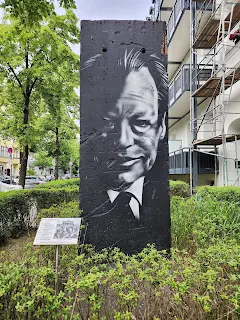My Japanese business acquaintance, who was sent by his parent company to work in Thailand, asked me about the rights of Thai employees during their probationary period. I explained it to him based on my experience as a former labor court mediator, as follows:
In the realm of Thai labor law, the term "employee" does not legally distinguish between probationary and permanent staff. Consequently, concerning rights and protections under labor law, probationary employees are considered employees and possess the same rights and obligations as their permanent counterparts. The law explicitly prohibits employers from discriminatory practices against any employee.
To standardize the recruitment process and ensure the selection of qualified individuals, many companies in Thailand implement a probationary period. This allows employees to demonstrate their capabilities, and both parties can agree upon the terms of employment.
Employees undergoing a probationary period hold the legal status of "employees" from their first day of work, entitling them to the same benefits and protections as confirmed staff.
Regarding the duration of the probationary period, Thai law does not stipulate a specific timeframe. Employers have the autonomy to set this duration based on mutual agreement with the employee. This condition can be established before or after the commencement of employment.
Key points concerning probationary employment in Thailand can be summarized as follows:
>>> Many companies set the probationary period between 90 to 120 days. This period can be extended upon mutual agreement.
>>> During a 120-day probation, employers should conduct formal performance evaluations at least twice, ideally before the 120-day mark.
>>> If the evaluation extends beyond 120 days and the employer terminates the employment without the employee committing any fault as outlined in Section 119 of the Labour Protection Act, the probationary employee is entitled to severance pay equivalent to permanent employees, as per Section 118 of the same Act.
>>> If a probationary employee works continuously for 120 days but less than one year and is terminated without cause under Section 119, they are entitled to severance pay equal to 30 days' wages at their final rate.
Termination During Probation:
Termination of a probationary employee can occur in two scenarios:
>>> Termination Without Prior Notice: This applies when the employee commits one of the offenses specified in Section 119 of the Labour Protection Act, such as dishonesty in their duties, intentional actions causing damage to the employer or company, violation of work regulations, absence without justifiable reason for three consecutive working days, gross negligence, or imprisonment by a final court judgment. In such cases, regardless of whether the 120-day probation period has been completed, the employer is not obligated to pay severance pay.
>>> Termination With Prior Notice: This occurs when the employee fails to meet the performance, qualification, or conduct standards set by the employer. If the employee has worked for less than 120 days, the employer is not required to pay severance pay but must provide advance notice of termination.
Relevant Supreme Court Judgments:
>>> Supreme Court Judgment No. 2364/2545: The probationary period is considered an employment contract with no fixed term. Therefore, terminating a probationary employee requires advance notice.
>>> Supreme Court Judgment No. 6796/2546: Employment contracts stating that the employer has the right to terminate the contract at any time during the probation period without stating reasons are contrary to Section 17 of the Labour Protection Act and are not legally binding.
>>> Specialized Appeal Court for Labour Cases Judgment No. 593/2563: Regarding a "1-year employment contract with a 90-day probation period," if during probation the employee does not dedicate their full working hours, lacks diligence and honesty, and has poor relationships with colleagues, the employer can terminate the employment due to failure to pass probation. This is considered a normal aspect of personnel management where employers have the right to select the most qualified workforce. In such a case, the employee is not entitled to wages for the remainder of the contract or damages from the employer.
This summary provides a comprehensive overview of the rights and protections afforded to probationary employees under Thai labor law.


